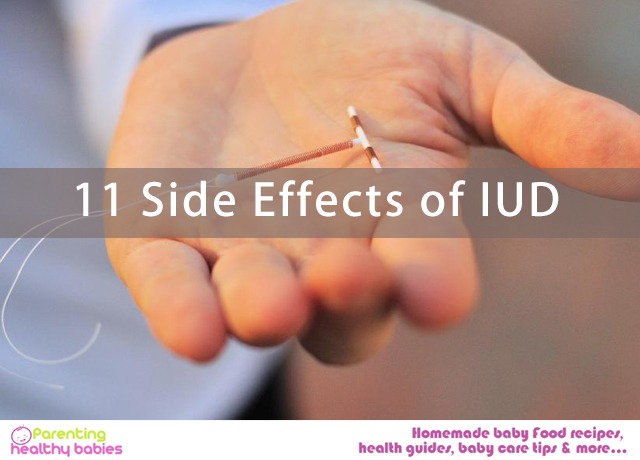IUD is a birth control method, which is basically a T-shaped stick that is inserted into the uterus. An IUD can prevent pregnancy up to next five years. So, once it is in, you don’t have to worry about pregnancy till the time you get it removed and when you get it removed, you can also get it reinserted. Since November 2016, there have been a 19% increase in the IUD related appointments. Although, there are a number of benefits an IUD has but so are the side effects of it. Listed below are 11 side effects of IUD. Read below to find more:
Truth about IUD and Side Effects
IUD Side Effects
Painful
IUD can push the wall of the uterus when it is put in. Though, it sounds painful but usually, it doesn’t hurt. But there can be chances when this can actually happen and for this, you could need surgery in order to remove the IUD. However, it is very rare.
Infection
If the bacteria get into the uterus when the IUD is put in, it is possible than you can get an infection. In case, the infection is not treated, it may affect your chances of getting pregnant in the future.
Not 100% effective
It is extremely unlikely but you can still get pregnant even after putting the IUD in the right spot. You should get your IUD removed soon after finding out that you are pregnant. There are increased chances of ectopic pregnancy and other serious health problems if you get pregnant with an IUD in place.
Can slip out
The IUD can sometimes come all the way out of the uterus or sometimes even just a little bit. In case this happens, there are chances that you will get pregnant. The IUD has to be removed in case the IUD comes out part of the way.
Bleeding
A lot of women experience bleeding after the IUD is inserted. But there is nothing to panic. You can get a few pads from your nurse after the appointment.
Poking strings
Many couples complaint about a poking string during sex, which may be a sign that your IUD isn’t positioned correctly. This could also mean that the strings haven’t softened yet. However, this will get better within a few months and is perfectly normal.
Temporary breakouts
So, this is a small price that you will have to pay in order to attain long term benefits. You can wait for a few months to see if your body adjusts or otherwise book an appointment later on with your dermatologist to step up your skin care routine. Plus, you can get the IUD removed at any point of time.
Leakages and bleeding
This will take no less than 6-8 months for your body to fully adjust to the kind of IUD you have had. Constant leakages, bleeding or anything in between can be pretty common during this period of time. This will depend a lot on the type of IUD you have. For instance, copper IUDs can lead to periods that are longer, heavier or both, whereas, hormonal IUDs tend to cause a lighter period or even no period over time.
Doesn’t eliminate STD
IUD can for sure lower your risk of pregnancy but your risk of getting STD is still the same. This means that there is still need for you to think about STD prevention. It is equally important for you to practice safe sex. Also, communicate any concerns that you have with your partner.
Cysts
Though, it is very rare but a few women who have had hormonal IUD can develop ovarian cyst. Most of the times, these women don’t even know that they have developed one. This can cause pain and require certain medical attention. If you feel a sharp pain below your belly button, consult a doctor and set up an appointment.
Cramps
This is the most common side effect of IUD. Generally, copper IUDs increase cramping and hormonal cramping can tend to reduce this. Make sure you invest in high quality pads. To keep cramping at bay, you can also drink rose hip tea, which can be a lot beneficial.
A lot of people who have been using IUD feel there are more pros an IUD has, but considering the side effects of the same is equally important. For beginners, there is no need to think about birth control for at least next 2-3 years, which also depends upon the type of IUD one has had. It has also been observed that women who rely on other birth control methods are less likely to stick with their birth control as compared to women who use IUD.
